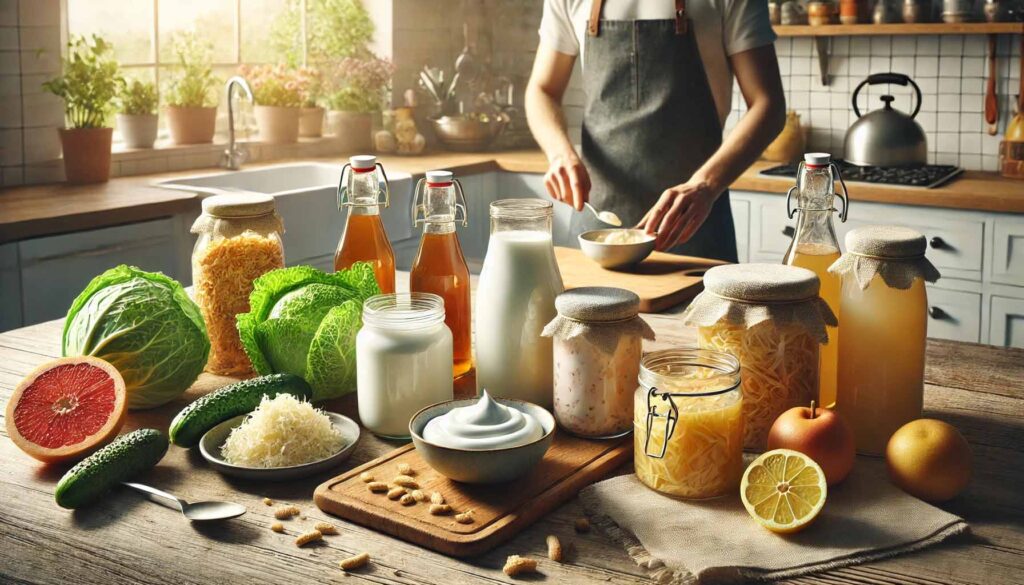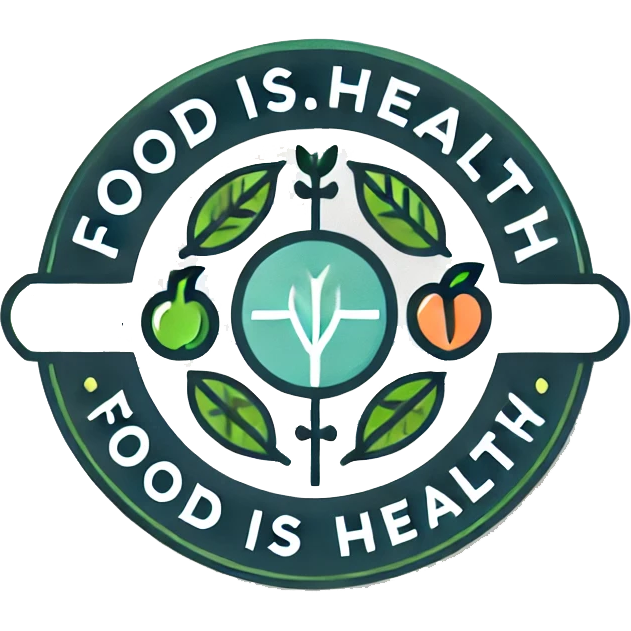Maintaining good gut health is essential for overall well-being. Your gut, or digestive system, is home to trillions of bacteria that play a key role in digestion, immune function, and even mental health. Probiotics are live microorganisms that can offer health benefits when consumed in adequate amounts. These “good” bacteria help balance the gut microbiome, which is crucial for digestion, nutrient absorption, and keeping harmful bacteria in check. Including probiotic-rich foods in your diet can significantly boost your gut health.

1. Yogurt
One of the most well-known sources of probiotics is yogurt. Made from milk fermented by bacteria, yogurt is rich in beneficial strains like Lactobacillus and Bifidobacterium. When shopping for yogurt, look for labels that say “live and active cultures” to ensure you’re getting probiotics. Greek yogurt, in particular, is an excellent choice because it often contains more probiotics due to the straining process that makes it thicker. Adding yogurt to your daily diet can improve digestion, reduce bloating, and enhance your immune system.
2. Kefir
Kefir is a fermented milk drink that has a tangy flavor and a consistency similar to drinkable yogurt. It’s packed with a diverse array of probiotic bacteria and yeasts, making it a potent source of probiotics. Kefir contains up to 61 different strains of microorganisms, far more than most yogurts. This variety can help improve digestion, reduce inflammation, and may even aid in controlling blood sugar levels. You can enjoy kefir on its own, in smoothies, or even as a salad dressing base.
3. Sauerkraut
Sauerkraut is finely shredded cabbage that has been fermented by lactic acid bacteria. This traditional German food is not only a tasty addition to sandwiches and salads but also a fantastic source of probiotics. Sauerkraut is rich in Lactobacillus bacteria, which can help improve gut health, reduce symptoms of irritable bowel syndrome (IBS), and support immune function. Just make sure to choose unpasteurized sauerkraut, as the pasteurization process kills the live bacteria.
4. Kimchi
Kimchi is a staple in Korean cuisine, made from fermented vegetables, usually cabbage and radishes, with a variety of seasonings. Like sauerkraut, kimchi is loaded with Lactobacillus bacteria and other beneficial microorganisms. The fermentation process not only adds a spicy kick but also enhances the probiotic content, making kimchi excellent for gut health. Regular consumption of kimchi has been linked to improved digestion, better cholesterol levels, and even weight loss.
5. Kombucha
Kombucha is a fermented tea that has gained popularity for its potential health benefits. It’s made by fermenting sweetened tea with a culture of bacteria and yeast, often referred to as a SCOBY (Symbiotic Culture of Bacteria and Yeast). Kombucha is rich in probiotics, particularly Acetobacter and Saccharomyces. Drinking kombucha can help balance gut bacteria, boost your immune system, and may even have detoxifying properties. It’s available in various flavors, so it’s easy to find one that suits your taste.
6. Miso
Miso is a traditional Japanese paste made from fermented soybeans, barley, or rice. It’s commonly used in soups, marinades, and sauces. Miso is a good source of probiotics, particularly Lactobacillus and Pediococcus bacteria, which can promote healthy digestion and reduce inflammation. Additionally, miso is rich in nutrients like vitamins B, E, and K, as well as folic acid, which contribute to overall health. A bowl of miso soup can be a comforting way to add probiotics to your diet.
7. Tempeh
Tempeh is a fermented soybean product that originates from Indonesia. It has a firm texture and a nutty flavor, making it a great meat substitute for vegetarians. Tempeh is rich in probiotics, especially Rhizopus oligosporus, which can aid digestion and help with nutrient absorption. It’s also a good source of protein, fiber, and vitamins, making it a nutritious addition to your diet. You can use tempeh in stir-fries, sandwiches, or as a protein-rich topping for salads.
8. Pickles
Not all pickles are probiotic, but those fermented in brine (saltwater) rather than vinegar are. The fermentation process encourages the growth of beneficial bacteria, particularly Lactobacillus. These pickles can help with digestion and offer a zesty, crunchy addition to meals. When buying pickles, look for ones that are labeled as “fermented” or “naturally fermented” to ensure you’re getting the probiotic benefits.
9. Buttermilk
Traditional buttermilk, the liquid left over after churning butter, is a fermented dairy product rich in probiotics. However, not all buttermilk sold in stores is cultured, so it’s important to choose the right kind. Cultured buttermilk is a good source of Lactococcus lactis and Leuconostoc, which can improve gut health. Buttermilk is often used in baking, but it can also be enjoyed on its own or added to smoothies for a tangy flavor boost.
10. Natto
Natto is a traditional Japanese food made from fermented soybeans. It has a strong flavor and sticky texture, which might take some getting used to. However, natto is one of the richest sources of Bacillus subtilis, a probiotic that can support gut health, improve digestion, and enhance immune function. Natto is also high in vitamin K2, which is important for bone health and cardiovascular health. You can enjoy natto with rice, in salads, or on toast.
Conclusion
Including probiotic-rich foods in your diet is a simple yet effective way to improve your gut health. These foods not only help balance the bacteria in your digestive system but also offer a range of other health benefits, from boosting your immune system to improving digestion. Whether you prefer the tangy taste of yogurt, the crunch of sauerkraut, or the umami flavor of miso, there are plenty of options to choose from. Start incorporating these foods into your daily meals, and your gut will thank you!
Make sure to check out more articles in our News & Views section. Feel free to reach out any time to collaborate with Food Is Health on projects which help people heal through natural food & nutrition.
Organic vs Conventional Food | Food Preservatives & Additives | Anti-Inflammatory Diets | Gut Health & Probiotics | Plant-Based Diets | Detox Diets & Cleanses | Food Allergies & Sensitivities Functional Foods | Sustainable Eating & Food Waste | Ag Related Topics | Popular Topics
